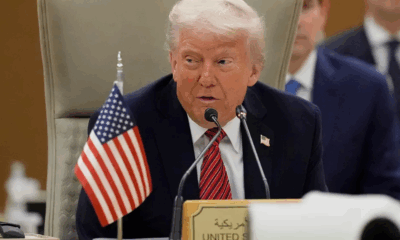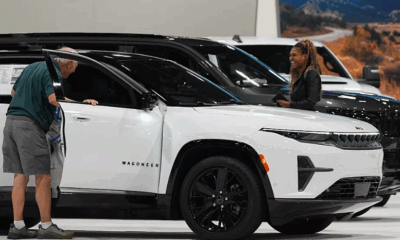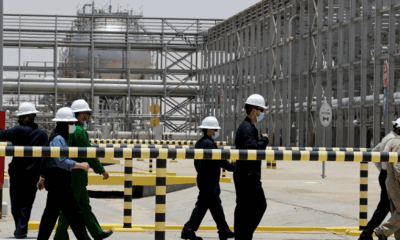Business
Women Entrepreneurs in the UK Face Major Hurdles in Accessing Business Funding, Study Finds

A growing body of research continues to reveal the challenges women entrepreneurs in the UK face when accessing business funding, with a recent report highlighting a stark disparity between male- and female-led companies in terms of debt and investment.
The report, published by finance broker Swoop Funding, examined data from over 50,000 UK businesses and found that male-led companies collectively hold £9.5 billion in business debt, compared to just £769 million for female-led ventures. On average, businesses run by men carry £315,000 in debt, while women-run companies average just £91,000.
While debt is not inherently negative—often used to support expansion or manage operational costs—the figures point to a broader issue of inequality in financial access and confidence in seeking funding.
Andrea Reynolds, CEO of Swoop Funding, said the discrepancy stems partly from differences in approach. “The simple answer is that men ask for funding earlier in the process than women do,” she explained. “Many women bootstrap their businesses from the kitchen table and hesitate to seek loans.”
The gender investment gap extends beyond traditional loans. According to the British Business Bank, for every £1 of venture capital invested in the UK, all-female founder teams receive less than 1p. All-male teams take 89p, while mixed-gender groups receive the remaining 10p. At this rate, experts say it could take more than 25 years for all-female teams to secure even 10% of all VC deals in the UK.
A lack of awareness around available funding, limited networks, and persistent cultural biases around borrowing have also contributed to the gap. Reynolds noted that lenders could do more to market start-up loans specifically to women and to dispel misconceptions about responsible business debt.
Entrepreneurs like Stacey-Rebekka Karlsson, founder of Goho Agency, offer real-life examples of how access to credit can drive success. Karlsson used a £25,000 government Bounce Back loan during the COVID-19 pandemic, which she said helped her business expand and deliver comprehensive services to clients. “We’ve managed to grow the business every single year since,” she noted.
Experts suggest a multi-pronged approach to closing the gap, including seeking out female-focused investment groups, networking platforms like Female Founders Rise, and government support schemes such as the Women in Innovation Awards and the Prince’s Trust Women Entrepreneurs Programme.
Building financial literacy, tracking credit scores, and planning strategically how to use funding are also key to long-term success. By addressing these structural barriers and offering targeted support, advocates say the UK can help unlock the full potential of its female entrepreneurial talent.
Business
Trump Secures $200 Billion in UAE Deals, Anchored by World’s Largest AI Campus Outside U.S.
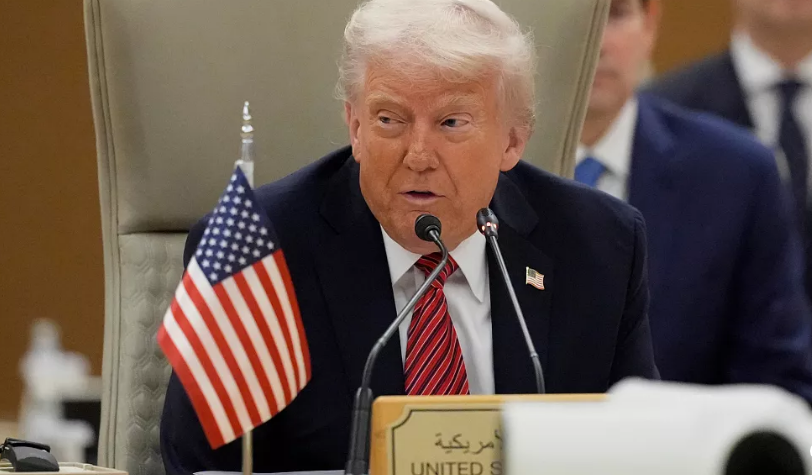
U.S. President Donald Trump has concluded his tour of the Persian Gulf with a major economic victory, announcing $200 billion (€179 billion) in agreements with the United Arab Emirates. The deals span artificial intelligence, aviation, energy, and industrial development, highlighting deepening economic ties between Washington and Abu Dhabi.
The centrepiece of the announcement is the creation of what is set to become the world’s largest AI campus outside the United States. The 10-square-mile facility will be built in Abu Dhabi by G42, a leading UAE artificial intelligence firm, in partnership with several American technology companies. With a planned capacity of 5 gigawatts, the campus will support advanced AI computing needs across the region and for developing nations in the Global South.
“The new AI campus will host American hyperscalers and large enterprises, enabling regional compute capabilities while serving the Global South,” the U.S. Department of Commerce said in a statement.
The White House confirmed the UAE may be permitted to import up to 500,000 of Nvidia’s H100 GPUs annually through 2027, with around 20% allocated to G42. While some U.S. officials have expressed concern about potential technology leaks to China, the agreements include safeguards to ensure secure access and restricted technology sharing.
“The UAE is committed to safeguarding advanced AI technologies by implementing stringent measures to prevent diversion and ensure controlled access,” the Commerce Department added.
UAE President Sheikh Mohamed bin Zayed Al Nahyan praised the agreement as “a testament to the ongoing collaboration between our countries in artificial intelligence.”
Commerce Secretary Howard W. Lutnick hailed the deals as a “major milestone in achieving President Trump’s vision for U.S. AI dominance.”
In addition to AI, the UAE committed to significant aviation and energy investments. Etihad Airways, the country’s national carrier, confirmed a $14.5 billion order for 28 widebody Boeing aircraft, including 787 and 777X models powered by GE Aerospace engines. The announcement comes just a day after Boeing signed a $96 billion agreement with Qatar Airways, driving its stock to a 52-week high.
In the energy sector, the Abu Dhabi National Oil Company (ADNOC) signed a $60 billion agreement with U.S. giants ExxonMobil, Occidental Petroleum, and EOG Resources to expand upstream oil and gas projects.
Other industrial deals include partnerships with Emirates Global Aluminum to advance aluminium smelting and gallium production.
The UAE agreements bring Trump’s total haul from the Gulf tour to $1.4 trillion, following earlier deals worth $600 billion with Saudi Arabia and $243 billion with Qatar. The trip underscored the Gulf region’s growing role in global tech and industrial investment, and the Biden administration’s strategic pivot toward economic cooperation in the Middle East.
Business
Boeing Lands Record $96 Billion Deal with Qatar Airways During Trump’s Middle East Trade Tour
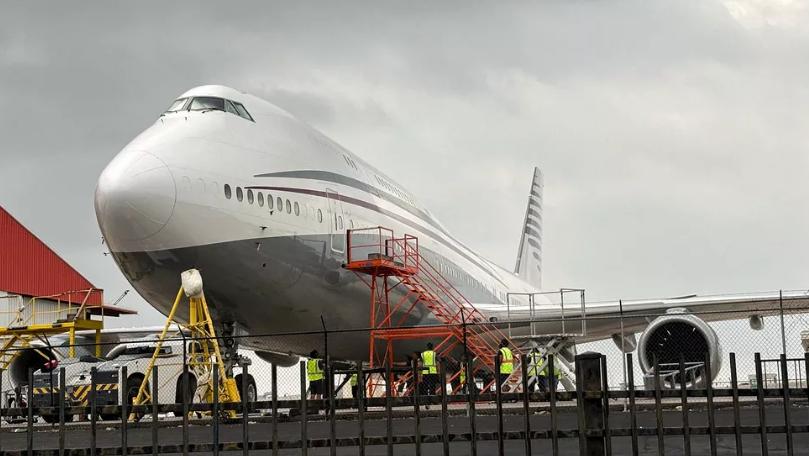
Boeing shares soared to their highest level in over a year after the U.S. aerospace giant secured a landmark $96 billion agreement with Qatar Airways, marking the largest widebody aircraft order in the company’s history. The deal was unveiled during former President Donald Trump’s ongoing trade mission across the Gulf region.
The agreement was part of a broader $243.5 billion package of U.S.-Qatar deals announced by the White House during Trump’s visit to Doha. It includes the sale of 130 Boeing 787 Dreamliners and 30 777X aircraft, reinforcing Washington’s deepening commercial ties with Gulf states.
“This order represents a record for Boeing and a pivotal moment for American manufacturing,” the White House said in a statement. “These historic deals will fuel economic growth, support nearly 400,000 American jobs, and reaffirm our leadership in aerospace technology.”
Boeing’s stock rose 2% on Wednesday, hitting a 52-week high in response to the announcement. The company described the order as its largest-ever for widebody jets and the biggest single purchase by Qatar Airways to date.
Qatar Airways CEO Engr. Badr Mohammed Al-Meer called the agreement a strategic move beyond mere fleet expansion. “We are building strength to deliver unmatched customer experiences,” he said, adding that the new aircraft will help the airline enhance global connectivity with improved efficiency and comfort.
Boeing CEO Kelly Ortberg, who joined Trump on the Middle East tour, hailed the deal as a major milestone for the company, which has struggled in recent years due to safety and production setbacks, particularly with its 737 MAX line. The company had also faced headwinds from U.S.-China trade tensions, which saw Beijing halt orders for Boeing jets in April.
In a related development, Boeing also secured a $4.8 billion order for 737-8 MAX aircraft from Saudi leasing firm AviLease earlier this week, further boosting its commercial prospects in the region.
Trump’s visit to Qatar follows a $600 billion investment plan signed with Saudi Arabia earlier in the week and precedes a scheduled stop in the United Arab Emirates, where additional aviation deals are anticipated.
The Boeing-Qatar agreement is one of several high-profile announcements during the former president’s tour, which also saw the finalization of an $80 billion artificial intelligence investment partnership with Saudi Arabia. These deals have not only strengthened U.S. business interests in the region but also driven gains across tech and aerospace stocks.
As geopolitical and trade dynamics continue to shift, Boeing’s historic order underscores the Gulf’s growing importance in the global aviation and technology supply chains.
Business
China and Europe Drive Global EV Growth as U.S. Market Stalls Amid Policy Uncertainty
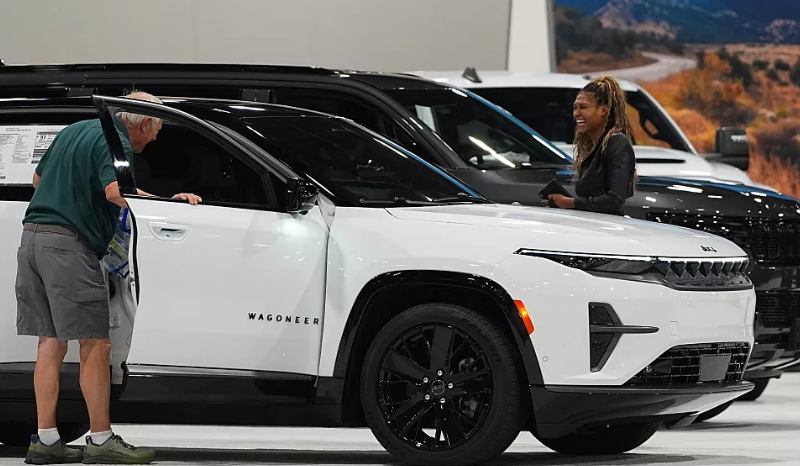
Global sales of electric and plug-in hybrid vehicles continued to surge in April, driven by strong performance in China and Europe, despite a slowdown in North America, according to new data released Wednesday by EV research firm Rho Motion.
Worldwide, electric vehicle (EV) sales reached 1.5 million units in April, a 29% increase compared to the same month in 2024. However, this figure marked a 12% decline from March, indicating a monthly dip in momentum. From January to April, EV sales totaled 5.6 million units — a 29% rise year-on-year.
Europe and China were the key drivers of growth. Sales in Europe jumped by 35% in April, with China close behind at 32%. Meanwhile, the rest of the world saw an even stronger April growth rate of 51%. In contrast, North American sales declined by 5.6% during the same period.
“Tariff negotiations are dominating headlines, but quietly, domestic manufacturers in China and the EU are growing market share,” said Charles Lester, Data Manager at Rho Motion. “The EU is the standout performer in 2025, as emissions targets have ignited a rapid industry transition to electric.”
From January to April, China posted a 35% increase in EV sales compared to the previous year. Europe followed with 25%, while North America saw more modest growth at just 5%.
Experts point to political developments as a key factor shaping the market’s trajectory. “EV adoption is accelerating — but politics, not technology, will decide who leads and who lags,” said Professor Christian Brand, a transport and energy expert at Oxford University.
In the U.S., uncertainty over the future of green tax incentives under President Trump’s administration is causing hesitation. Legislation under review would eliminate the current $7,500 federal tax credit for EV purchases by the end of 2026 and limit eligibility further. Tax breaks for commercial and second-hand EVs could also be scrapped.
Meanwhile, China is rolling out new consumer incentives to stimulate its slowing economy. Buyers trading in older vehicles for new EVs are now eligible for subsidies worth 20,000 yuan (€2,471), further boosting demand.
Trump’s 25% tariffs on imported vehicles and components have complicated matters for automakers with global supply chains. While recent executive orders offer some tariff relief, industry leaders remain concerned about profitability and dampened consumer sentiment.
Despite the policy divide, more than one in four cars sold globally this year is expected to be electric, according to the International Energy Agency.
“The shift to EVs is a gradual evolution, not a revolution,” said Brand. “It’s not just about switching engines — it’s about reshaping entire industries.”
-

 Business12 months ago
Business12 months agoSaudi Arabia’s Model for Sustainable Aviation Practices
-

 Business12 months ago
Business12 months agoRecent Developments in Small Business Taxes
-

 Politics12 months ago
Politics12 months agoWho was Ebrahim Raisi and his status in Iranian Politics?
-

 Business10 months ago
Business10 months agoCarrectly: Revolutionizing Car Care in Chicago
-

 Business11 months ago
Business11 months agoSaudi Arabia: Foreign Direct Investment Rises by 5.6% in Q1
-

 Technology12 months ago
Technology12 months agoComparing Apple Vision Pro and Meta Quest 3
-

 Politics12 months ago
Politics12 months agoIndonesia and Malaysia Call for Israel’s Compliance with ICJ Ruling on Gaza Offensive
-

 Sports9 months ago
Sports9 months agoKeely Hodgkinson Wins Britain’s First Athletics Gold at Paris Olympics in 800m

